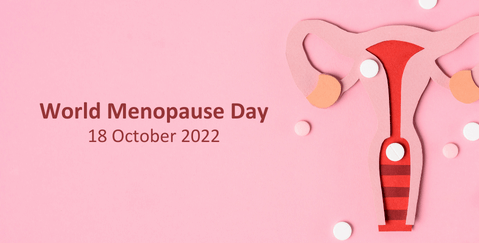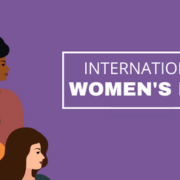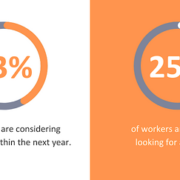World Menopause Day – Improve Employee Awareness, Wellbeing and Support
18 October is World Menopause Day, a day focusing on menopause, aiming to raise awareness about menopause and improve health and wellbeing for women around the world.
We look at how it might be impacting your workplace and what you can do to support your employees.
What Is Menopause?
The menopause is when a woman stops having periods, as a natural part of ageing, and it usually happens between 45-55 years of age. What is less known and understood is the stage leading up to menopause, known as the perimenopause.
The perimenopause refers to the time during which the female body makes the natural transition to menopause. Many women start to experience symptoms to greater or lesser degrees. Similarly this stage itself can vary in length – it can often last for four to five years, although for some women it may continue for many more years or for others last just a few months.
How Does Menopause Affect Women in the Workplace?
In 2021, there were 15.5 million women in the UK workplace. Of those, around a fifth were over 50. In the UK, the average age for a woman to go through menopause is 51, however around one in a 100 women experience menopause before age 40. This is a normal process for a large section of your workplace.
The variety of symptoms experienced range from hot flushes, night sweats, low mood, poor memory, insomnia, anxiety/panic attacks, headaches, fatigue to joint pains and palpitations. These can be debilitating in any context, but their impact can be amplified for an employee at work.
According to recent CIPD research, 59% working women with menopause symptoms have said that it has a negative impact on them at work. 30% said they had been unable to go into work because of their symptoms, but only a quarter of them felt able to tell their manager the real reason for their absence.
How Can You Support Your Employees at Work?
The varying durations and symptoms of both perimenopause and menopause can make identifying appropriate support strategies difficult for employers. Some women also may not identify the symptoms they are experiencing as being linked to the menopause so may not ask for support.
It is certainly true that menopause has become a more widely discussed topic in recent years – thanks to greater media interest, government focus and shared celebrity experiences. However it remains for many people a subject they may find difficult to talk about.
As an employer you can support by:
- Increasing awareness amongst all staff. Create an open, encouraging environment where people feel comfortable discussing their concerns and supported by line managers and colleagues alike. Consider running awareness campaigns.
- Treating menopause in same way as you would any absence with appropriate sickness absence management procedures.
- Discussing possible adjustments for employees experiencing menopause related to their specific symptoms such as flexible start/finish times, adjustable temperature control, quieter workspaces etc.
- Developing a menopause policy to outline what support is available to staff.
- Training your line managers specifically on dealing with menopause issues, so they are able to handle any discussions sensitively and professionally.
As the workforce demographic continues to change, this issue will become more and more important to businesses. Employers who act now to raise awareness across all staff and to implement appropriate support mechanisms for employees experiencing the menopause, will be well placed to deal with any future challenges.
Narrow Quay HR can help you in identifying what support would be useful for your business – whether it’s creating a menopause policy, running awareness campaigns or training sessions for line managers.












